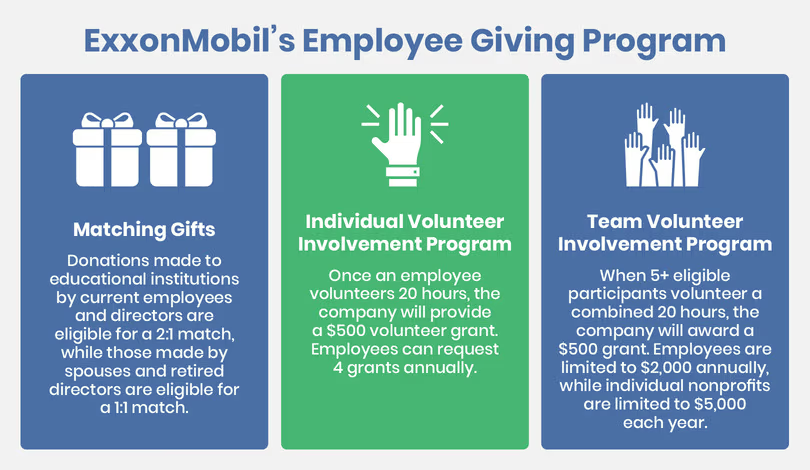The Role of Business Philanthropy in Fostering Sustainable Service Practices
Company philanthropy has actually become a critical method for services intending to incorporate sustainability right into their procedures. By straightening company objectives with environmental and social initiatives, organizations can foster healthier environments. This technique not only enhances corporate credibility but likewise strengthens stakeholder connections. The real level of its influence on lasting organization success remains to be checked out. What ingenious practices are being adopted as an outcome?
Recognizing Company Philanthropy and Its Value
Business philanthropy serves as an important mechanism via which organizations can add to societal well-being while enhancing their very own reputations. This technique includes organizations allocating sources, such as funds, time, or expertise, to sustain neighborhood initiatives, philanthropic causes, or social programs. By taking part in humanitarian efforts, firms can attend to pressing social concerns, such as education, healthcare, and ecological worries, thereby playing a pivotal function in fostering favorable change.
Business philanthropy can boost worker spirits and attract ability, as individuals progressively look for to work for socially accountable companies. It can likewise strengthen client commitment, as consumers favor brands that show a dedication to making a difference. Inevitably, comprehending the importance of business philanthropy exists in recognizing its double advantages: improving community well-being while simultaneously enhancing service trustworthiness and reliability in the eyes of stakeholders. This alignment of social obligation with industrial passions underscores its importance in today's business landscape.
The Link In Between Company Philanthropy and Sustainability
While many companies engage in philanthropy to improve their public picture, a much deeper connection exists between business philanthropy and sustainability. Company philanthropy often aligns with sustainable practices by supporting initiatives that resolve environmental and social challenges. They contribute to a healthier ecosystem and society when businesses spend in area tasks, sustainable power, or academic programs. This commitment not only fosters a good reputation yet additionally reinforces stakeholder connections, improving brand loyalty.

Case Studies: Effective Business Philanthropy Initiatives
Numerous firms have efficiently integrated philanthropic campaigns into their organization methods, demonstrating the concrete benefits of such dedications. Microsoft has actually introduced countless programs, such as its AI for Earth campaign, which supports ecological sustainability via innovation. This technique not only aids preservation efforts however additionally improves Microsoft's online reputation as a leader in business duty.
Similarly, Unilever's Lasting Living Strategy emphasizes ecological and social impact, straightening its philanthropy with organization objectives. By funding projects that boost hygiene and sanitation, Unilever reinforces its brand name while adding to worldwide health and wellness.
An additional notable example is Patagonia, which promises 1% of sales to ecological reasons. This commitment resonates with consumers, promoting commitment and driving sales.
These instance researches highlight that effective corporate philanthropy can generate monetary returns while promoting sustainable methods, enhancing the concept that honest business methods are helpful for both culture and profits.
Structure Stronger Stakeholder Relationships Via Philanthropy
Philanthropy offers as an important tool for companies seeking to strengthen their relationships with stakeholders, as it fosters count on and demonstrates a commitment to social responsibility. By taking part in philanthropic campaigns, businesses can connect with local areas, boosting their online reputation and motivating stakeholder commitment. This find out here interaction commonly causes significant interactions, creating a feeling of common values between the company and its stakeholders.
Moreover, kind initiatives can attend to particular community needs, allowing companies to add favorably to societal difficulties. This participation not only showcases a business's moral stance but likewise helps in bring in and keeping customers who prioritize social responsibility.
In addition, workers frequently feel extra inspired and involved when they see their company actively taking part in philanthropic tasks, leading to a much more effective workplace culture. Company philanthropy becomes a calculated method for developing stronger, much more durable connections with diverse stakeholder groups.
Gauging the Effect of Corporate Philanthropy on Service Success
The link in between business philanthropy and stakeholder interaction sets the phase for evaluating its influence on overall business success. Organizations frequently gauge this impact with different metrics, consisting of brand name online reputation, staff member complete satisfaction, and client commitment. Philanthropic efforts can improve a business's picture, promoting depend on amongst customers and financiers alike. Additionally, involved workers have a tendency to display higher morale and performance, straight associating to enhanced service performance.
Quantitative evaluation can likewise be utilized, with organizations reviewing economic returns versus humanitarian expenditures. Study suggests that business with strong kind commitments typically experience higher supply performance and reduced volatility. In addition, qualitative analyses, such as stakeholder comments, can provide understandings into community assumptions and long-lasting relational advantages.
Eventually, measuring this the influence of you can try here business philanthropy requires a complex method, incorporating both measurable and qualitative information to guarantee a thorough understanding of its impact on company success. corporate philanthropy.
Frequently Asked Questions
Just How Can Small Companies Take Part In Business Philanthropy Effectively?

What Prevail Misunderstandings About Business Philanthropy?

How Does Company Philanthropy Impact Employee Spirits?
Corporate philanthropy favorably influences staff member spirits by cultivating a sense of objective, enhancing work fulfillment, and promoting commitment. Employees commonly feel extra engaged and encouraged when their company adds to social causes, producing a supportive workplace.
What Are the Tax Advantages of Corporate Philanthropy for Services?
Corporate philanthropy provides substantial tax advantages for businesses, including reductions on philanthropic contributions and possible decreases in gross income. These motivations encourage business to participate in social initiatives while concurrently boosting their financial standing.
Exactly How Can Firms Choose Effective Philanthropic Allies?
Firms can choose effective humanitarian companions by reviewing alignment with their values, assessing influence potential, analyzing monetary openness, and cultivating strong communication. This calculated strategy enhances collaboration and assurances shared advantages for both events entailed.
Corporate philanthropy serves as a crucial mechanism through which companies can contribute to social health while boosting their very own reputations - corporate philanthropy. Eventually, comprehending the relevance of company philanthropy exists in identifying its twin benefits: improving area welfare while all at once enhancing business credibility and trustworthiness in the eyes of stakeholders. While lots of business engage in philanthropy to improve their public picture, a deeper link exists in between company philanthropy and sustainability. The link between corporate philanthropy and stakeholder engagement establishes the phase for examining its effect on overall organization success. Company philanthropy uses considerable tax advantages for organizations, consisting of deductions on charitable payments and possible reductions in taxable earnings